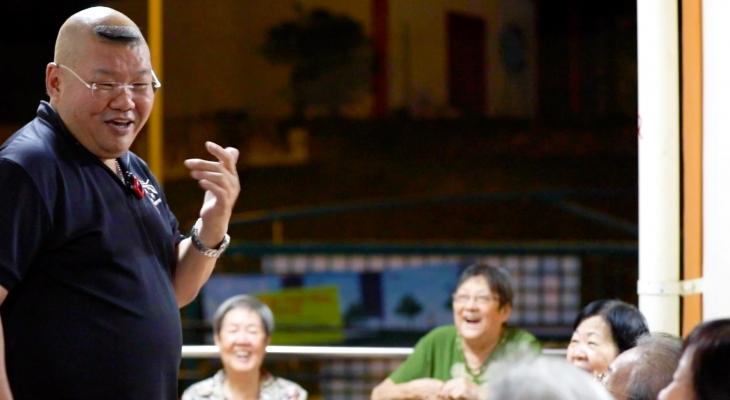A friend forever
Elderly living alone find peace in Tommy’s promise to fulfil their last rites
The red, bulging bundle makes a soft splash, unfurling as it hits the surface of the rolling sea.
“Rest in peace, uncle,” whispers a volunteer.
She watches; the weight of the cremated ashes and bones pulls the cotton-fabric coffin into the murky depths of its watery grave. A coterie of flowers emerges from the sinking package, leaving a colourful trail in its wake. There are no tears, but it is a briny farewell, nonetheless.
On this balmy Tuesday, six strangers who died alone are being buried in the waters off the eastern coast of Singapore. Funeral director Tommy Yu conducts the sombre ceremony on a rented bum boat.
For nearly four decades, Tommy has been performing last rites for people without next-of-kin, regardless of their religion. His selfless service to the poor does not stop there. He also cremates and buries those estranged from family, who leave the world neglected and forgotten.
Along with volunteers, Tommy does this work under the banner of Love & Unity Volunteers Establishment (LUVE), which he founded in 1986. Each year, Tommy gives free funeral services to as many as 30 elderly across Singapore, paid for out-of-pocket or from donations to LUVE.
The sobering process starts with a call from a social worker to Tommy. He picks up the deceased, cleans and dresses them in a new outfit, before delivering them to the crematorium. There, he sees off the dead, and later collects and prepares the remains, before taking them to their final resting place.
“When a person lives until 70 or 80 years old, when he or she passes on, would they have no friends? Not even family?” asks Tommy. “This kind of poverty is such that even their friends and family don’t wish to acknowledge them.”
According to media reports, Singapore’s Department of Statistics projects that the number of elderly persons living alone aged 65 and above, is expected to rise to 83,000 by 2030, compared to 58,800 in 2017.
A number of factors have been used to explain why: Singapore’s ageing population, breakdown of family relationships, and seniors who simply prefer being independent. But one of the consequences of this freedom is that an increasing number of older people are also dying alone.
Many choose to live in Bukit Merah, one of the maturest housing estates in Singapore. Unable to own their homes, the elderly rent government-subsidised, one-bedroom flats in this area.
Explains Tommy: “Since the 1980s in Bukit Merah, I was what they called a “little gangster”. At first I was there to make trouble. Eventually, I formed a bond with the elderly folks.
“I would protect and take care of them. In a blink of an eye, I’ve been looking out for them for 38 years.”
Over time, Tommy has earned the unshakeable trust and respect of Bukit Merah’s residents. His ruddy complexion and signature tuft of hair on a clean-shaven pate are a welcomed presence in the neighbourhood.
Octogenarian resident Goh Oh Keing says with fondness, “He takes care of us. All the elderly call him, “Fatty”.”
Adds another resident Doh Tong Kiok: “There are others who refer to him as the “filial son of Bukit Merah”.”
“In their lives, I take on the role of their child,” Tommy explains. “Whether they slip and fall, are hospitalised, enter a hospice, or even pass on, these are my responsibilities.”
LUVE’s volunteers also organise weekly activities to encourage the seniors out of their flats to socialise.
Tong Kiok moved to Bukit Merah more than three decades ago, and has volunteered with LUVE for 26 of those years.
“Tommy is a very good-natured person...He’s given us a lot of strength,” she says. “The elderly here...are worried that when they pass on, who will help them settle their last rites?”
These concerns have not fallen on deaf ears. Tommy has reassured Tong Kiok and her neighbours that he would fulfil their final requests after they die, giving them peace of mind.
“When a person goes, it has to be with dignity. Only when everything is done properly will I be at ease,” he says. “In the past, the elderly were very afraid. They didn’t dare to articulate what their last wishes are. Now they are not afraid anymore.”




Komentar
Posting Komentar